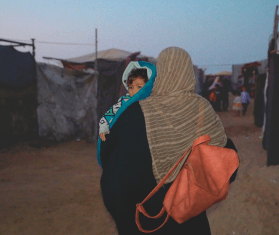In 2022, at least 30 countries have seen outbreaks of cholera or similar diseases and Doctors Without Borders/Médecins Sans Frontières (MSF) is now running cholera interventions in more than ten countries. The current number of outbreaks is unusual and worrying.
Cholera is a deadly disease that spreads rapidly, even though it should be easy to prevent and treat. The risk factors for cholera outbreaks are always linked to access to safe drinking water and proper wastewater disposal. Lack of clean water can be the result of various causes: climate-related disasters like severe floods or droughts, armed conflict, political instability, and the displacement of people fleeing crises.
Today MSF is running cholera response programs in Kenya, Ethiopia, Somalia, Cameroon, Nigeria, Haiti, Lebanon, Syria, and Malawi. Our teams are involved in cholera prevention through health promotion, vaccination, and water and sanitation work. We also set up cholera units in hospitals and clinics, or open standalone cholera treatment centers in large outbreaks so we can treat hundreds of patients simultaneously.



